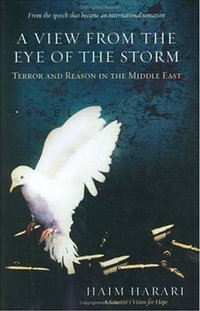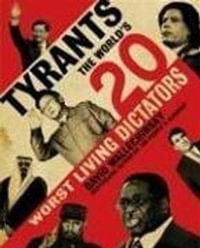
eBOOK
Shari'a Scripts
A Historical Anthropology
By: Brinkley Messick
eBook | 2 January 2018 | Edition Number 1
At a Glance
eBook
RRP $52.43
$47.99
or
Instant Digital Delivery to your Booktopia Reader App
Read on
Android
eReader
Desktop
IOS
Windows
A case study in the textual architecture of the venerable legal and ethical tradition at the center of the Islamic experience, Shar??a Scripts is a work of historical anthropology focused on Yemen in the early twentieth century. There—while colonial regimes, late Ottoman reformers, and early nationalists wrought decisive changes to the legal status of the shar??a, significantly narrowing its sphere of relevance—the Zayd? school of jurisprudence, rooted in highland Yemen for a millennium, still held sway.
Brinkley Messick uses the richly varied writings of the Yemeni past to offer a uniquely comprehensive view of the shar??a as a localized and lived phenomenon. Shar??a Scripts reads a wide spectrum of sources in search of a new historical-anthropological perspective on Islamic textual relations. Messick analyzes the shar??a as a local system of texts, distinguishing between theoretical or doctrinal juridical texts (or the “library”) and those produced by the shar??a courts and notarial writers (termed the “archive”). Attending to textual form, he closely examines representative books of madrasa instruction; formal opinion-giving by muftis and imams; the structure of court judgments; and the drafting of contracts. Messick’s intensive readings of texts are supplemented by retrospective ethnography and oral history based on extensive field research. Further, the book ventures a major methodological contribution by confronting anthropology’s longstanding reliance upon the observational and the colloquial. Presenting a new understanding of Islamic legal history, Shar??a Scripts is a groundbreaking examination of the interpretative range and historical insights offered by the anthropologist as reader.
About the Author
Brinkley Messick is professor of anthropology and Middle Eastern, South Asian, and African studies as well as the director of the Middle East Institute at Columbia University. He is the author of The Calligraphic State: Textual Domination and History in a Muslim Society (1993) and a coeditor of Islamic Legal Interpretation: Muftis and Their Fatwas (1996).
Brinkley Messick uses the richly varied writings of the Yemeni past to offer a uniquely comprehensive view of the shar??a as a localized and lived phenomenon. Shar??a Scripts reads a wide spectrum of sources in search of a new historical-anthropological perspective on Islamic textual relations. Messick analyzes the shar??a as a local system of texts, distinguishing between theoretical or doctrinal juridical texts (or the “library”) and those produced by the shar??a courts and notarial writers (termed the “archive”). Attending to textual form, he closely examines representative books of madrasa instruction; formal opinion-giving by muftis and imams; the structure of court judgments; and the drafting of contracts. Messick’s intensive readings of texts are supplemented by retrospective ethnography and oral history based on extensive field research. Further, the book ventures a major methodological contribution by confronting anthropology’s longstanding reliance upon the observational and the colloquial. Presenting a new understanding of Islamic legal history, Shar??a Scripts is a groundbreaking examination of the interpretative range and historical insights offered by the anthropologist as reader.
About the Author
Brinkley Messick is professor of anthropology and Middle Eastern, South Asian, and African studies as well as the director of the Middle East Institute at Columbia University. He is the author of The Calligraphic State: Textual Domination and History in a Muslim Society (1993) and a coeditor of Islamic Legal Interpretation: Muftis and Their Fatwas (1996).
Industry Reviews
"A detailed study of the production, transmission, and transformation of scriptural judicial knowledge among Yemeni scholars, judges, and other legal figures.
Maurits S., Berger Leiden University, Journal of the American Oriental Society
Skillfully recovers the practice of Shari'a law in the highlands of prerevolutionary Yemen."
Choice
"Turns on its head a long history of assumptions regarding categories that have largely remained unquestioned."
Reading Religion
"A complex and sophisticated book, one that provides important insights into Islamic jurisprudence and legal practice and forces the reader to think carefully about how these might (or should) be understood and explored."
Islamic Law and Society
"In this monumental work, Brinkley Messick presents a richly detailed explication of a ground-breaking approach to the study of the textual traditions of shari'a, combining nuanced ethnography of locally contextualized practices of writing and reading with a sharp critical engagement with the work of philologists and historians of Islamic law and society."
Journal of Islamic Studies
Choice
"Turns on its head a long history of assumptions regarding categories that have largely remained unquestioned."
Reading Religion
"A complex and sophisticated book, one that provides important insights into Islamic jurisprudence and legal practice and forces the reader to think carefully about how these might (or should) be understood and explored."
Islamic Law and Society
"In this monumental work, Brinkley Messick presents a richly detailed explication of a ground-breaking approach to the study of the textual traditions of shari'a, combining nuanced ethnography of locally contextualized practices of writing and reading with a sharp critical engagement with the work of philologists and historians of Islamic law and society."
Journal of Islamic Studies
Read on
Android
eReader
Desktop
IOS
Windows
ISBN: 9780231541909
ISBN-10: 0231541902
Published: 2nd January 2018
Format: ePUB
Language: English
Audience: Professional and Scholarly
Publisher: Columbia University Press
Edition Number: 1























